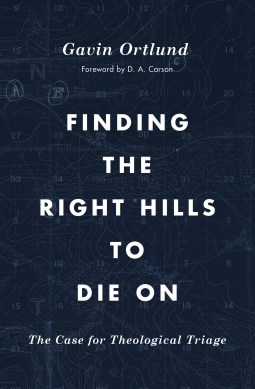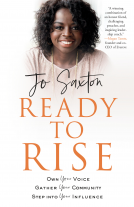
Finding the Right Hills to Die On
The Case for Theological Triage
by
This title was previously available on NetGalley and is now archived.
Send NetGalley books directly to your Kindle or Kindle app
1
To read on a Kindle or Kindle app, please add kindle@netgalley.com as an approved email address to receive files in your Amazon account. Click here for step-by-step instructions.
2
Also find your Kindle email address within your Amazon account, and enter it here.
Pub Date Apr 21 2020 | Archive Date Apr 05 2020
Talking about this book? Use #FindingtheRightHillstoDieOn #NetGalley. More hashtag tips!
Description
"This is a wise and needed book.”
—Russell Moore, President, The Ethics & Religious Liberty Commission of the Southern Baptist Convention
In theology, just as in battle, some hills are worth dying on and others are not. But how do we know which ones? When should doctrine divide, and when should unity prevail? Just as a medic on a battlefield treats the severely wounded first and then moves on to the less serious injuries, we must prioritize doctrine in order of importance. Pastor Gavin Ortlund implores us to cultivate humility as we prioritize doctrine into four ranks—essential, urgent, important, and unimportant—so that we will be as effective as possible at advancing the gospel in our time.
A Note From the Publisher
PDF may not be compatible with all reading devices
Advance Praise
“A timely and well-written book on a vitally important subject. Ortlund reminds us that Christian theologians must see themselves first and foremost as servants of the Great Commission. He shows us how much of the Christian academy has been divorced from the gospel mission. The Bible is a theological, pastoral, and evangelistic book—and those must never be separated, lest one become malformed. I am immediately using this book with our elder and pastoral team!”
—J. D. Greear, President, Southern Baptist Convention; author, Not God Enough; Pastor, The Summit Church, Raleigh-Durham, North Carolina
“Gavin Ortlund is a scholar and leader who both wields the sword of the Spirit and exhibits the fruit of the Spirit. He not only stands up for Jesus but also stands with him in love, holiness, and mission. In a sadly contentious time, this book shows us how to love each other and stay on mission together even when we see some nonessential doctrines in different ways. This is a wise and needed book.”
—Russell Moore, President, The Ethics & Religious Liberty Commission of the Southern Baptist Convention
“To put it simply: this is an important book. With a historian’s insight, a theologian’s precision, and a pastor’s wisdom, Gavin Ortlund has given the church an invaluable handbook for navigating our ongoing doctrinal challenges and for healing our ongoing doctrinal divisions.”
—Jared C. Wilson, Assistant Professor of Pastoral Ministry, Spurgeon College; Author in Residence, Midwestern Baptist Theological Seminary; author, The Imperfect Disciple
“Some seem to think that faithfulness to God is measured in how much we argue about things. I am so grateful for Gavin Ortlund’s book, which reminds us that faithfulness can be defined in far more biblical ways. Ortlund does not pretend that he has the answers to end all church arguments, but he helps us understand that failure to distinguish critical matters from secondary and tertiary concerns is an abandonment of the pastoral prudence that is essential to Christ’s mission. Even Jesus said, ‘I still have many things to say to you, but you cannot bear them now.’ For pastors operating with the care and courage of Jesus, patience is not compromise, kindness is not weakness, and Christ’s mission supersedes our personal victories. Ortlund honors Christ’s manner as well as his message in this fascinating and challenging book.”
—Bryan Chapell, Senior Pastor, Grace Presbyterian Church, Peoria, Illinois
“There are few needs today as urgent as the one Gavin Ortlund so ably addresses in this wonderful book. Healthy theological perspective and poise are all too absent in an age of immediate escalation and rage. This book could transform our thinking, our capacity for fellowship, and our witness to the world. I pray it is read widely and heeded deeply.”
—Sam Allberry, Speaker, Ravi Zacharias International Ministries; author, Why Does God Care Who I Sleep With? and 7 Myths about Singleness
“Gavin Ortlund helps us think well as brothers and sisters in Christ on where we must staunchly defend the truth and draw immovable lines. He also helps us know where to extend grace and lovingly disagree while working together for the fulfillment of the Great Commission and the building up of the Lord’s church. This book is much needed in our day. May our Savior use it for our good and his glory.”
—Daniel L. Akin, President, Southeastern Baptist Theological Seminary
“In this age of theological infighting and compromise, Gavin Ortlund issues a clarion call for wisdom. You don’t have to agree with him on everything to appreciate his sane and clarifying advice. This is an important book for our time, helping the church as we struggle for both faithfulness to God’s word and a proper Christian unity.”
—Michael Reeves, President and Professor of Theology, Union School of Theology, Oxford, United Kingdom
“As best I can tell, this is the first book of its kind and is long overdue. Gavin Ortlund has done the church a tremendous service by providing a clear, irenic, and well-reasoned (not to mention biblical) perspective on the comparative importance of our many Christian doctrines. Some in the church today have waged vigorous war and ‘died’ needlessly on virtually every hill, while others, in the name of unity, don’t find any hill worth ‘dying’ on. To both, and to everyone in between the two extremes, I say, ‘Read this book!’”
—Sam Storms, Senior Pastor, Bridgeway Church, Oklahoma City, Oklahoma
Available Editions
| EDITION | Other Format |
| ISBN | 9781433567421 |
| PRICE | $17.99 (USD) |
Average rating from 6 members
Featured Reviews
 Sergiu P, Reviewer
Sergiu P, Reviewer
The author presents an interesting schema for theological triage. I'm a bit skeptical about the last category of the things that basically don't matter in his schema. I'm also not convinced by some of his arguments as to what should go into what category. It is very interesting that even in a short book as this one the author gives away some shortcomings, such as when he talks about head coverings, his argument being that just because the apostle's argument is rooted in creation, such as the argument for head coverings, it doesn't mean that the issue is anything more than cultural. That's frankly the stupidest argument I have ever heard. If the apostle roots something in creation, it means by definition that it is not a cultural issue. While some issues in the bible are harder to clarify and understand, other issues are pretty straightforward and are just made difficult by people who refuse to submit to biblical mandates because the person in question doesn't want to look like a fool in the eyes of current culture.
 Daniel F, Educator
Daniel F, Educator
Finding the Right Hills to Die On is a timely book. After the New Calvinist resurgence the past twenty years, a love for confessional theology has led many Christians to grow intellectually; however, it has also led to arrogance and a lack of charity towards those with differing theological convictions (differing to calvinism that is). If you love theology, if you love people, if you love the church, and if you love God, then this book is for you! In this book, Gavin Ortlund is popularizing what Albert Mohler made famous, theological triage. Ortlund teaches us how to handle various doctrines that have different levels of importance to the church. The book isn't long, consisting of two main parts in six chapters. Given the topic, it would have been helpful to have some sort of visuals or charts that demonstrate the level of importance from one doctrine to another. But, nevertheless, Ortlund does a great job giving examples of how to contend for different doctrine.
 Trevor K, Reviewer
Trevor K, Reviewer
I am grateful to crossway and Netgalley.com for an advance review copy of this book. This is a short little book but it is an excellent book in every way. Ortlund sets out the premise that we need theological triage in our day, just as a doctor arriving at an accident would prioritise which patient to treat so we too in days of decline in the Western Church need to know what doctrines should and shouldn't stop us from working with other Christians.
Ortlund does this helpfully by setting out three categories of doctrine, those which every Christian should hold to and which are essential to the Christian faith, the examples of this that he sights are the Virgin Birth and justification through faith alone, helpfully he reminds us that not being able to articulate justification through faith alone at the moment of conversion is a very different category from a believer who knows and denies the doctrine. We should be gentle with the one and perhaps less gentle with the other.
The second category that Ortlund identifies are important doctrines over which Christians may legitimately disagree but which are not essential to the faith. The most common example he cites for this is the practice of baptism either creedobaptism or peadobaptism. Christians throughout history have disagreed on this subject have disagreed on the method and mode of baptism. This is a cause Ortlund argues to divide the church because to not do so would be disingenuous. To be united using a doctrinal minimalism would be confusing both for the ledership and the congregation. However helpfully he calls us back to remember that separation from each other doesn't mean that we are called to throw rocks at one another rather we are called to love one another and look out for one another good even in the midst of difference.
The third category that Ortlund cites are things which have traditionally been called things indifferent, things that are important because they are revealed to us in God's word but things on which salvation doesn't hinge. The examples cited for this are the seven days of Genesis 1 and the thousand years of Revelation 20.
I think the beauty of this book is that it doesn't give any answers, in fact it causes more questions as I read the book I began almost doing my own theological triage, well is the role of women in the church a first order thing or a second order thing as he argues? Do the seven days of Genesis 1 belong in category three or category two? As you read these are the questions you ask and this causes you to question and engage with your own theology that little bit more.
In short, given the days we are living in, given the smallness of many churches certainly in the UK our doctrinal distinctive are becoming less important, we are going to have perform this theological triage more and more often. We are going to have to think well is planting a church of our denomination in a town that has four other gospel churches important or should we go to the area that has no gospel witness at all? You might think the answer to that is straightforward but until we perform this theological triage, until we keep the main thing the main thing sadly the answer may not be as striaght forward as you might hope.
This book serves as the antidote to that thinking, this book calls us to keep the main things the main things and to rejoice in gospel difference when we see it. Every Christian should read this book.
First sentence: There’s an old saying (I can’t remember where I heard it): “There is no doctrine a fundamentalist won’t fight over, and no doctrine a liberal will fight over.” Strictly speaking, that’s not quite fair to thoughtful liberals and fundamentalists. But we can probably recognize these two instincts. Most of us have a tendency in one direction or the other—to fight over doctrine too much or too little.
I loved, loved, loved FINDING THE RIGHT HILLS TO DIE ON by Gavin Ortlund. The premise is simple: Are there theological doctrines worth fighting for? (Yes) Are all theological doctrines worth fighting for or fighting over? (No.) How does one distinguish between the doctrines worth fighting for and the ones not worth fighting for? How does one discern which doctrines are so fundamental and essential to understanding, proclaiming, and believing the gospel...that they must be fought for and preserved...and which doctrines are secondary or even tertiary? Theological triage is the practice of discerning and deciding these matters.
"Ortlund usefully develops four tiers in his theological-triage system: (1) doctrines that are essential to the gospel; (2) doctrines that are urgent for the health and practice of the church, such that Christians commonly divide denominationally over them; (3) doctrines that are important for one branch of theology or another, but not such that they should lead to separation; (4) doctrines that are unimportant to gospel witness and ministry collaboration."
There are dangers in the two extremes: The first extreme being people who refuse to fight for (stand up for, defend, protect) ANY doctrine; unity must be preserved no matter what. The only absolute perhaps being UNITY AT ALL COSTS. All other absolutes can be whittled down, thrown out, reinterpreted, given a new spin. The weakness of the first extreme, in my opinion, is that every opinion counts or matters--except the Voice of God. The Bible has lost authority, lost status, lost a place. Perhaps that is the extreme of that extreme. Perhaps that is the worst case scenario of that extreme. But certainly when a denomination values being in step with the times, with the culture, with the world, with unbelievers and sinners, with majority-voted morals and virtues, rejecting the idea of absolute truth, etc., they are essentially throwing out the Word of God and saying we know better than God.
The second extreme being people who are willing to fight for (stand up for, defend, protect) ALL doctrines. It doesn't matter the doctrine, if you don't agree with me--then we're at odds and can't work together or be unified. You're my enemy and Christ's enemy if we're not 100% in sync with one another. Neither extreme is healthy or ideal. The second extreme has SO MANY PERCEIVED ENEMIES that their focus tends towards being right, being proved right, getting the best of others. Little room for love, lots of room for hate. The weakness of the second extreme Ortlund writes, "If our identity is riding on our differences with other believers, we will tend to major in the study of differences. We may even find ourselves looking for faults in others in order to define ourselves."
As Christians live their lives--during the week and on Sunday--they will encounter those who disagree with them. How does one react? How does one live peacefully? How does one come to terms? Which disagreements are worth speaking up about, fighting about, fighting for, defending. And which ones are best avoided and pushed aside? He writes, "Most of the battles you could fight, you shouldn’t. And I’d go so far as to say that the majority of doctrinal fights Christians have today tend to be over third-rank issues—or fourth. We deeply need to cultivate greater doctrinal forbearance, composure, and resilience."
Ortlund quotes from others who have written about this subject. (It hasn't always been called triage, but Christians have been calling for discernment and defense for centuries.)
"Erik Thoennes offers a helpful list of criteria: 1. Biblical clarity 2. Relevance to the character of God 3. Relevance to the essence of the gospel 4. Biblical frequency and significance (how often in Scripture it is taught, and what weight Scripture places upon it) 5. Effect on other doctrines 6. Consensus among Christians (past and present) 7. Effect on personal and church life 8. Current cultural pressure to deny a teaching of Scripture."
"Wayne Grudem provides a list of questions that churches and organizations should ask when considering whether to draw a new theological boundary: 1. Certainty: How sure are we that the teaching is wrong? 2. Effect on other doctrines: Will this teaching likely lead to significant erosion in other doctrines? 3. Effect on personal and church life: Will this false teaching bring significant harm to people’s Christian lives, or to the work of the church? 4. Historical precedent: Is this teaching contrary to what the vast majority of the Bible-believing church has held throughout history? 5. Perception of importance among God’s people: Is there increasing consensus . . . that this matter is important enough that the false teaching should be explicitly denied in a doctrinal statement? 6. Purposes of the organization: Is the teaching a significant threat to the nature and purposes of the organization? 7. Motivations of advocates: Does it seem that the advocates of this teaching hold it because of a fundamental refusal to be subject to the authority of God’s Word, rather than because of sincerely held differences of interpretation based on accepted hermeneutical standards? 8. Methods of advocates: Do the advocates of this teaching frequently manifest arrogance, deception, unrighteous anger, slander, and falsehood rather than humility, openness to correction and reason, kindness, and absolute truthfulness?"
I would say primarily this book might be best suited for pastors, elders, church leaders, teachers. But I think all Christians could benefit from reading this one.
Quotes:
"Do we have a “warm corner in our hearts” for every single true Christian, even if we strongly disagree with him or her on various issues?"
"A good prayer to pray is this: Lord, give me a “warm corner in my heart” for other Christians, especially those I am tempted to reject or despise. I know that I cannot solve all the divisions in your church, but show me what the next step might be for me personally to pursue and cultivate and honor the unity of your bride."
"The Bible itself commends an attitude of eager responsiveness to God’s word in its entirety."
"Confusion may be an understandable response to some passages, and grief to others; but indifference should not be our response. A casual, take-it-or-leave-it attitude about theology is totally incompatible with how we are to receive the word of God. Its contents may call for trembling and tearing of clothes, but never shrugging."
'The truth is unchanging, but culture is constantly changing; so there will always be points of friction between truth and culture."
"The gospel is simply too controversial, too disruptive, not to be attacked. Therefore, there can be no effective, long-term ministry of the gospel without a corresponding willingness to engage in its defense."











